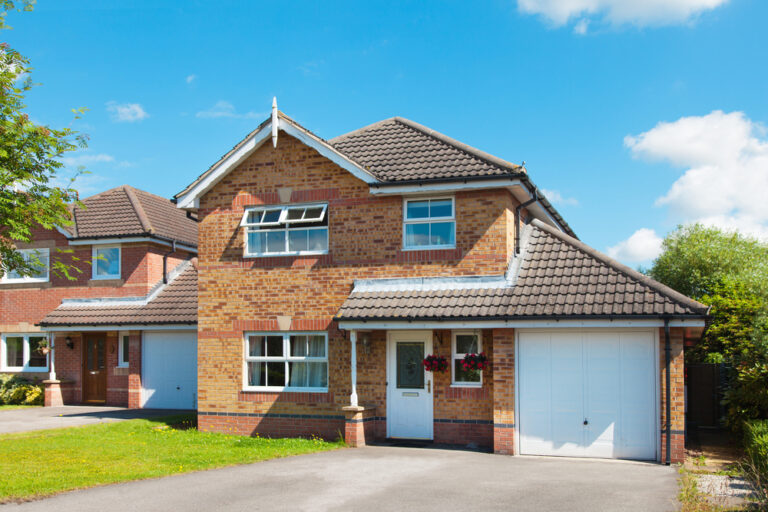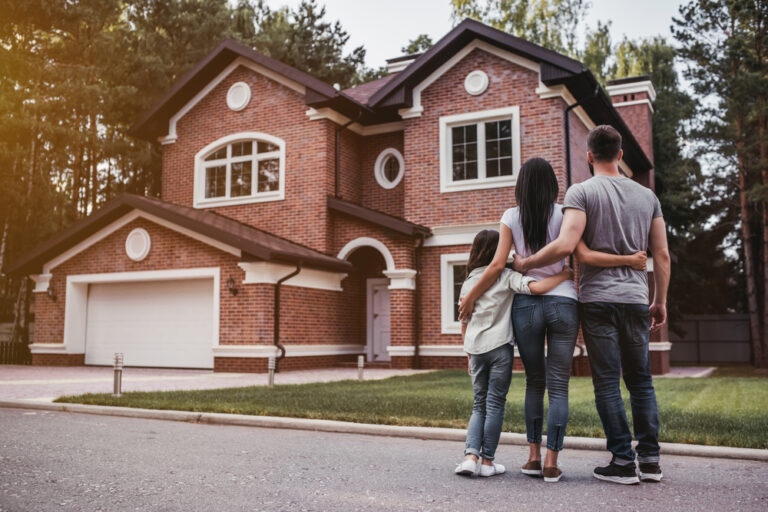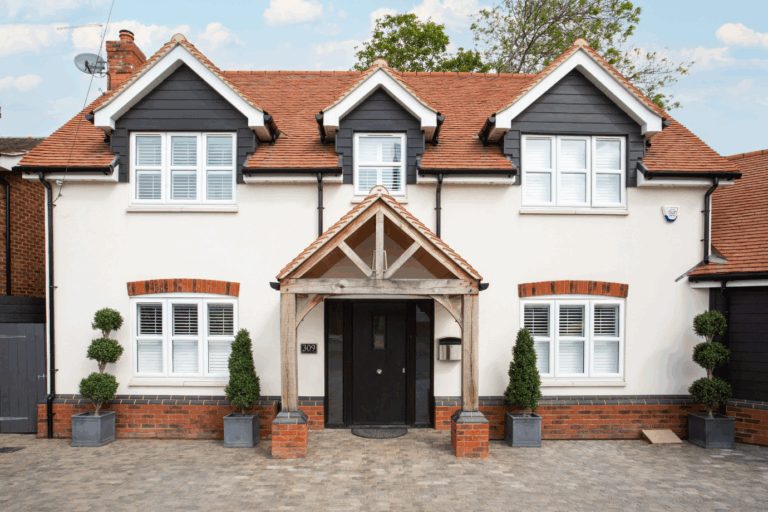Buying a property to renovate can be exciting, exhilarating and hugely beneficial financially.
But it’s not for the faint hearted – and there are a whole host of things you’ll need to think about before taking the plunge on a big renovation project.
Here, we’ll explore renovation in more detail, answer some key questions and reveal six major things you’ll need to consider before buying a property to renovate…
How to renovate a house
Of course, every property renovation project will be different, but here are the rough stages you’ll need to go through when buying a property and renovating it:
1. Search and find the property you want to buy
2. Consider what you’ll do with the property, bring in an architect for a second opinion and speak to your local planning department about any permission you might need
3. Arrange your finance, either through a mortgage, renovation mortgage or bridging loan
4. Make your offer and, hopefully, secure the property for the right price
5. Bring in your designer or architect to finalise the plans for your renovation
6. Strip back the property, while preserving any existing features you plan to keep
7. Make any structural changes, such as adding support beams to create an open-plan concept or an extension or loft conversion
8. Update or improve heating systems and electrics
9. Complete interior work, installations and decoration
10. Undertake any external work or improvements
How much does it cost to renovate a house?
Renovation costs for property projects can vary hugely, but you could be looking at tens or hundreds of thousands of pounds for major work.
Some of the costs you might have to factor into your project include:
• Gas supply improvements
• Heating systems
• Electrics and rewiring
• Replacing windows
• Drywall and plastering
• New kitchen
• New bathrooms
• Flooring costs
• Woodwork, including skirting, door frames and architraves
• Structural work, removing walls and adding support beams
• Extensions or conversions to add square footage
Getting a mortgage loan for a house renovation
Most standard mortgage lenders won’t offer loans on properties that are classed as ‘uninhabitable’.
So, you may need to consider other forms of finance if you’re planning to take on a big renovation project at a property that can’t currently be lived in.
Renovation mortgages and refurbishment loans
A renovation mortgage is one way to secure the finance you require to complete your project.
Renovation mortgages are usually scaled depending on the amount of finance needed to complete a particular project, with light refurbishment finance available for renovations that don’t require planning permission, through to heavy refurbishments like structural work, demolition, extensions and conversions.
Interest rates for renovation mortgages
As with most standard mortgage applications, the interest rate you pay on a renovation mortgage will largely depend on the amount of money required and your personal circumstances, as well as the scale of the work being undertaken.
A typical renovation mortgage rate would be around 5%, based on a loan against 75% of the property’s fully renovated value.
Other finance options for renovation projects
If you’re unable to secure a renovation mortgage, bridging finance can sometimes be an option to secure the funds you need.
Bridging loans are short-term solutions to complete renovation work, before you secure a traditional mortgage once a property is deemed ‘habitable’.
Bridging finance can be complicated, however, and interest rates are generally higher than mortgage finance, so always seek independent financial advice.
What to consider before buying a renovation property
Buying a house that needs renovation can be a hugely exciting project to take on.
Whether you’re looking to make money by bringing a property back to life and selling it on or you’re keen to put your stamp on a new home and add some value at the same time, there’s lots to consider.
1. Location is crucial
In order to maximise your return on investment from buying a property to renovate, it’s important to place location at the top of your search criteria.
Think of it like buying the worst house in the best street.
With that mindset, the only way is up, and once you have brought your renovation property up to standard, you should benefit from the popularity of the area when you come to sell it on.
2. Look closely at what you’re buying. Really closely!
If you can avoid any nasty surprises once you start renovating, your budget will really thank you for it.
And the best way to do that is to make sure you go through your potential renovation purchase with a fine-toothed comb before buying it.
Bring along any experts or contractors you need to check out the property with you on a viewing.
Their knowledge and eye for a problem could be worth its weight in gold and will help you avoid potentially huge costs once your project is under way.
3. Enquire about planning permission before you buy
Once you have found a potential renovation project, don’t go in all guns blazing and make an offer before you have enquired about planning permission.
If you need to extend or build up, you could need planning consent, so buying a property without any idea on whether you’ll get it is a dangerous strategy.
Attempting to sell on a rundown property with no hope of planning permission is not a position you’ll want to be in, so enquire with the local authority or a planning expert before you commit to a project.
4. Get advice on funding
Many mortgage lenders will limit the amount of finance they’re prepared to loan you on a renovation property – and many won’t loan you anything at all if the property you’re buying is uninhabitable.
Do your research into lenders who might be prepared to help you fund your project and speak to an independent financial advisor about other ways you can finance your renovation.
5. Consider all your costs
Of course, how much it costs to renovate a property will largely depend on the amount of work required to bring it up to scratch.
But you should also consider other costs when buying a property to renovate. These could include:
• Stamp duty
• Solicitors’ fees
• Additional finance costs
• Architect or design fees
• Planning fees
The most important thing during any renovation is to keep a close eye on all of your costs and make sure you are as prepared as you can be for any unexpected extras on your budget. Homes that have been neglected often spring up nasty surprises.
And that’s where making sure you use the right contractors is key.
While it can be tempting to undertake certain work yourself in order to save money, sometimes it’s a more cost-effective strategy to bring in the professionals.
They will often get certain jobs done quicker and to a higher standard, thus reducing the need for more work in the future.
6. Think about who you’ll be selling to
One of the biggest mistakes buyers make with renovation projects driven by a desire for profit is developing the property with themselves in mind rather than their potential buyers. If you purchase a doer-upper in a street that is highly desirable for families, think about where the value is for a family buyer.
That could be in adding a bedroom with en-suite, or a real heart of the home open plan kitchen diner.
Alternatively, if you’re looking to sell your renovation project to a young professional couple, don’t spend thousands on a high-maintenance garden that will simply be too daunting for them.
Put yourself in your buyer’s shoes and develop a property for them rather than yourself.
Of course, if you are renovating a property to live in, absolutely consider yourself! But it can still be worth thinking ahead to who the property might attract as a buyer in the future – and you should always start any property journey with the end in mind.
Further reading…
Whether you’re looking for a property to buy and renovate, or you’re simply looking for a new property to live in, there are a host of things you’ll need to look for when on a viewing.
And if you are considering a renovation project, a great place to find properties in need of TLC is an auction – we’ve outlined everything you need to know about buying at auction right here.
Finally, if you’re looking to give your property a simple spruce-up, here are 10 DIY jobs you can take on to improve your home.







